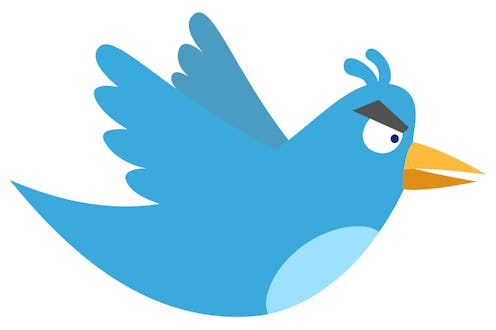News
5 Questions You Need To Ask Before Sending A Tweet

For me, Twitter is absolutely essential. I use it to connect with like-minded feminists, talk shit with my friends, and make a lot of really terrible jokes. But some people, like IAC PR executive Justine Sacco, who got sack-o-ed (I CAN’T HELP MYSELF) over the weekend for a horribly racist tweet about AIDS in Africa, use it as a place to store all the horrible thoughts that they would never say out loud.
Lucky for you, I’ve put together this handy guide of questions you can ask yourself before you make a complete ass out of yourself on social media. You might be able to delete a tweet, but screenshots are forever, so it’s best to just avoid being a jerk altogether. Before you hit that send button, ask yourself these questions or be prepared for peril.
1. Is my tweet racist?
I really feel like this should be a simple task, but don’t say racist shit on Twitter. Just don’t. Someone will find out, they will retweet you, and the entire Internet will show up at your door madder than hell. Twitter accounts like @YesYoureRacist search the web for instances of “I’m not racist, but <insert really racist comment>,” and their 40,000-person-strong following will name and shame you. If you ever feel the need to say a racist thought out loud, just don’t. And especially don’t share it with the whole damn world.
2. Does my hilarious joke make fun of marginalized people?
Comedy isn’t about making fun of people that life regularly kicks in the ass. People of color, trans people, and gay people already face enough stigma and hate in this world, and they don’t need to be the butt of your joke. This especially includes racist jokes (ask Steve Martin) and rape jokes. Remember, the rule of a joke is to punch up, not down. Besides, it’s likely that your stupid joke isn’t even funny, so just spare us.
3. Am I stepping into a conversation that I don’t belong in?
Sometimes, it’s best to just sit back and listen. For example, when Suey Park started #notyourasiansidekick, it was best for white women to sit back and learn the ways in which Asian Americans experience stigma. If a specific hashtag or conversation revolves around oppression that you don’t experience, use your platform to signal-boost and share the stories from marginalized voices. Also, stay far, far away from saying “But <women/men/straight people> experience hate, too!” in the middle of these discussions — you’re derailing the conversation away from the original point.
4. Am I willing to deal with the consequences of my tweet?
These rules don’t mean that you should never say anything controversial on Twitter, but you have to be ready to live with the consequences. When Justine Sacco boarded that plane for South Africa, she had no clue what would be waiting for her when she landed. If you’re going to make homophobic, racist, or sexist remarks on Twitter, you better be big enough to stand behind your words.
5. How will I respond if someone finds this tweet offensive?
Every once in a while, our own privilege makes it difficult to determine whether or not something we say is offensive. It happens to everyone, even beloved celebrities and prominent activists. If you do find that something you’ve tweeted is viewed offensively, what are you going to do about it? Reflect on what you’ve said, and if you do find that it is offensive, delete it. Apologize profusely, and work on doing better in the future. We’re all going to screw up on Twitter occasionally, and it’s all about how you handle it.
Sure, Twitter is fun, but if you don’t use it correctly, you could be opening yourself up to a lot of criticism. You should absolutely speak your mind on everyone’s favorite “microblogging” site, just don’t be a dick.